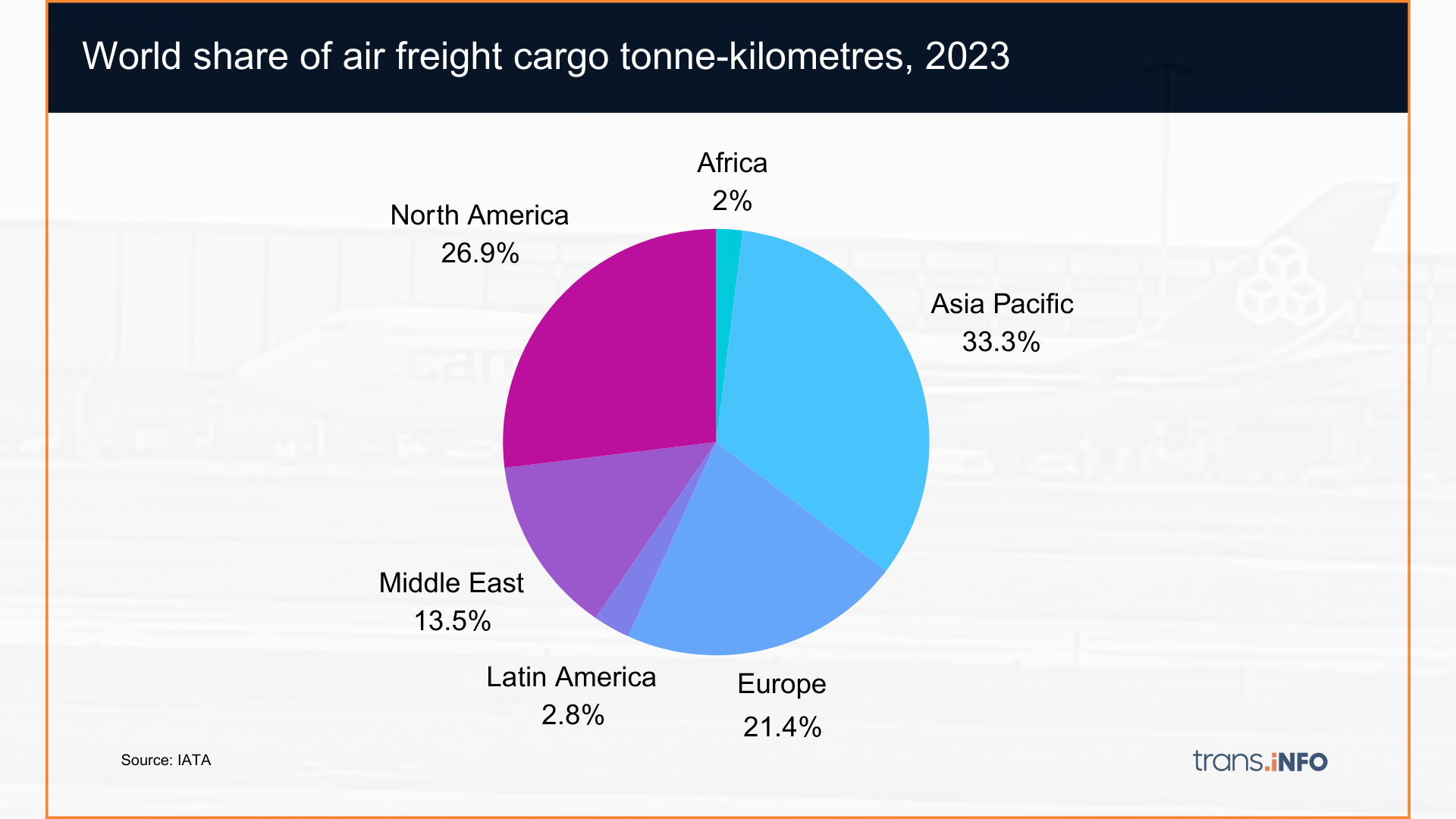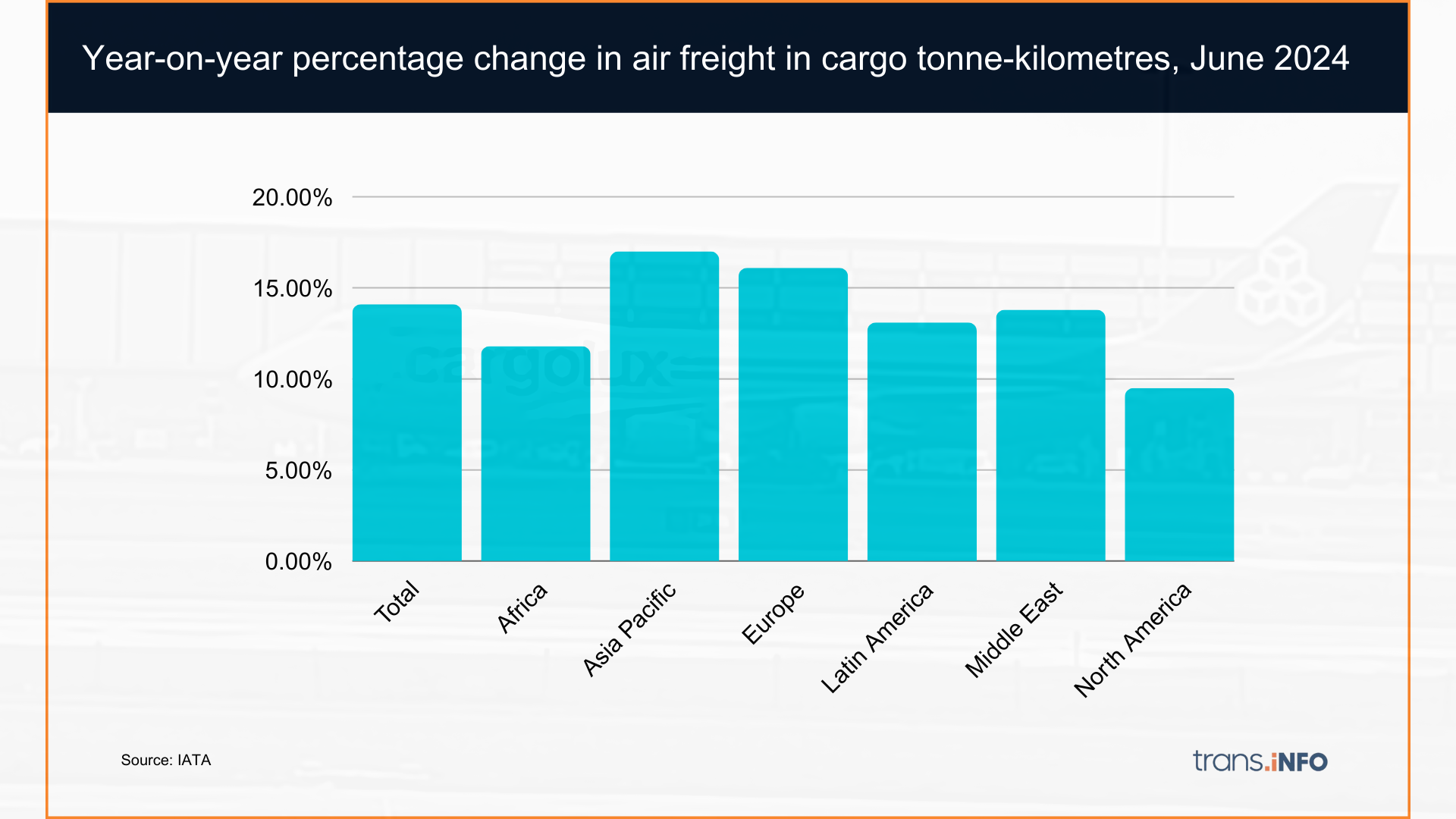The International Air Transport Association (IATA) has reported a significant surge in global air cargo demand for June 2024.
The data in IATA’s latest update reveals that June saw a 14.1% increase in demand in cargo tonne-kilometres (CTKs) compared to the same month last year. This marks the seventh consecutive month of double-digit year-on-year growth, notes IATA.
The substantial increase in demand also contributed to a robust first half of the year for the air cargo industry, with volumes surpassing those of 2023, 2022, and even the record-breaking 2021.
In the aforementioned update, IATA’s Director General, Willie Walsh, highlighted the driving forces behind this growth, citing maritime shipping constraints and a booming e-commerce sector:
“Air cargo demand surged in June. Strong growth across all regions and major trade lanes combined for a record-breaking first-half performance in terms of CTKs. Maritime shipping constraints and a booming e-commerce sector are among the strongest growth drivers. Meanwhile, the sector has remained largely impervious to ongoing political and economic challenges, and the US customs crackdown on e-commerce deliveries from China. Air cargo looks to be on solid ground to continue its strong performance into the second half of 2024,” said Walsh.

Capacity and regional performance
In addition to demand, capacity also saw a notable increase. Available cargo tonne-kilometres (ACTKs) rose by 8.8% compared to June 2023.
The increase was even more pronounced in international operations, which saw a 10.8% rise. This growth in capacity has helped to accommodate the surging demand.
When breaking down the performance by region, Asia Pacific led with a 17.0% year-on-year increase in CTKs, followed by Europe at 16.1%, Latin America at 13.1%, the Middle East at 13.8%, and North America at 9.5%.

Each region also saw varying increases in ACTKs and cargo load factors (CLF), indicating a widespread uptick in air cargo activity across the globe.
Economic indicators and market drivers
According to IATA, several economic factors played a role in shaping the air cargo market in June 2024. The global manufacturing output, as indicated by the Purchasing Managers Index (PMI), expanded to 52.3, while new export orders PMI registered a slight contraction at 49.3.
In addition to this, global cross-border trade showed a modest 0.1% month-on-month expansion in May, and industrial production remained steady compared to the previous month.
When it comes to inflation, however, there has been a more mixed picture. The EU and Japan saw relatively constant inflation rates at 2.6% and 2.8% respectively, while the US experienced a drop to 3.0%. In contrast, China’s inflation rate hovered near zero amid weak domestic demand, high unemployment, slow income growth, and a persistent real estate crisis since 2023.